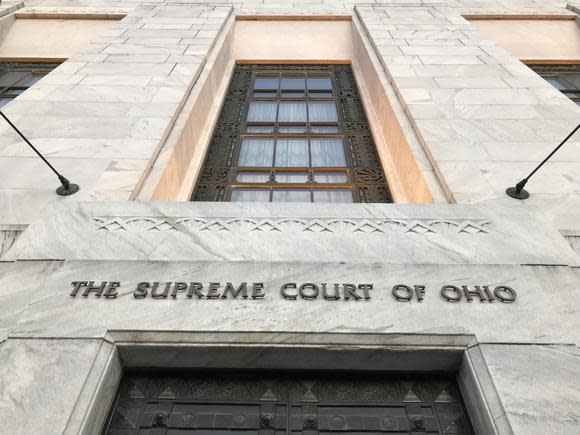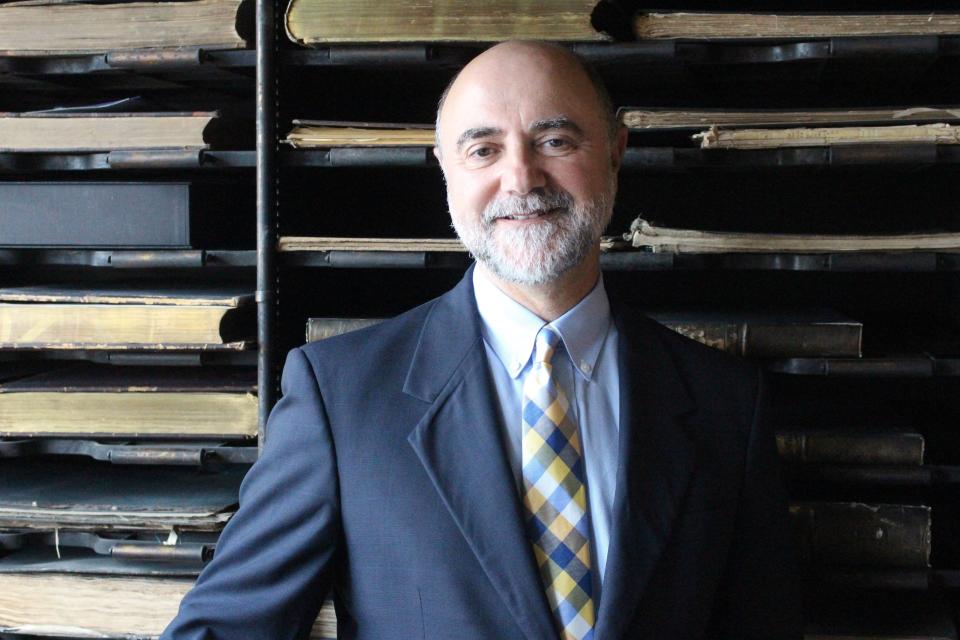Opinion: Setting high bail terms violates constitutions
Propaganda: "ideas or statements that are often false or exaggerated and that are spread in order to help a cause, a political leader, a government, etc."
Over the past several months, local FOP President Dan Hils has spewed what can only be called propaganda to support his argument that the way to achieve public safety is for courts to fill the jails and keep them filled. The most recent example of this is his Enquirer opinion piece on Jan. 16, "Public safety should be first priority in setting bail."

"Lock-’em-up" theories of law enforcement such as those espoused by Hils are relics of the past that, when followed, failed to make the public safer. In fact, adherence to these theories made our communities less safe by needlessly destabilizing families, including the families of criminal defendants not yet – and in many cases never – convicted of the crimes with which they were charged.
Because the targets of Hils’ propaganda are judges who are merely upholding their oaths to follow the law, it’s imperative for lawyers like us, who’ve spent decades making sure the justice system functions fairly and according to the law, to speak out firmly and with facts.
Hils argues that judges have perverted the bail system by daily turning criminals loose to prey upon the community. He contends judges are derelict in not considering public safety when setting bond amounts for criminal defendants. Too bad Hils’ opinion piece didn’t come close to telling the truth about the bail system or the Ohio Supreme Court’s recent decision about it in the Justin DuBose case.
The truth is that in DuBose, the court instructed that if a suspect is too dangerous to release pending trial, prosecutors and judges must use a specific statute that sets out a detailed procedure to determine if the suspect may be detained without bail due to public safety concerns. The court held that judges may not accomplish that same end by simply setting bail so high it is impossible to meet. Setting impossible bail terms violates the U.S. and Ohio Constitutions.
The facts of the DuBose case are straightforward. In July 2020, a man named Shawn Green was murdered during a robbery. Justin DuBose and another man were indicted for the crime. The judge assigned to DuBose’s case set his bail at $1.5 million, which DuBose’s attorney contested as excessive, given his client’s financial situation. DuBose challenged the bail amount in the Hamilton County Court of Appeals, which decided that $1.5 million bail was indeed excessive under Ohio law.

In its Jan. 4 decision, the Ohio Supreme Court agreed with the Hamilton County Court of Appeals, holding that a bail amount of $500,000 in DuBose’s case was reasonable and not excessive. The Supreme Court reasoned as follows: "The sole purpose of bail is to ensure a person’s attendance in court… A bail amount that is 'higher than an amount reasonably calculated to' ensure the accused’s presence in court is 'excessive.'"
Hils claims the Ohio Supreme Court does not care about public safety, but he fails to mention the Supreme Court’s extensive discussion of a legal procedure prosecutors can invoke to ensure that an accused who represents a danger to the community will be kept in jail, without bail, pending trial. Instead of castigating prosecutors for not invoking this legal procedure in cases like DuBose’s, Hils chooses to castigate judges – including the Hamilton County Court of Appeals and the Ohio Supreme Court – for applying the bail rules exactly as written and for enforcing the constitutional constraints on bail.
Hils suggests that increases in violent crime are traceable to judges failing to consider public safety in setting bail amounts. Never mind that the Ohio and U.S. Constitutions and Ohio law dictate what judges can and cannot consider and that there is no evidence reforms bringing bail practices in line with the law actually lead to increases in violent crime.
In other words, setting a purposely high bail amount in order to preclude the accused from being released pretrial is not the proper procedure and, in fact, violates the Ohio and U.S. Constitutions. But even when setting bail the court reminds us that Criminal Rule 46 requires weighing "the seriousness of the offense" and "the previous criminal record of the defendant." Indeed, those factors must be considered, and the court of appeals did consider them in setting $500,000 as a reasonable bail amount for DuBose. This, by the way, is twice the amount of bail set just last month in the case of a Franklin County Sheriff’s deputy accused of murder – a bail amount with which Hils apparently has no quarrel.
Law enforcement officers like Hils know full well that applying the rules for bail as written and applying the statute to deny bail as written are the best ways to protect the rights of the accused and protect the public. Judges, prosecutors and police officers like Hils take the same oath in Ohio. Each promises to uphold the Constitution of the United States of America and the constitution and laws of the State of Ohio.
Upholding the rule of law not spewing propaganda is how they honor their oath.
Al Gerhardstein is a civil rights attorneys at Friedman, Gilbert + Gerhardstein. Paul DeMarco is an appellate law specialist and one of the founding members of Markovits, Stock & DeMarco. Kathleen Brinkman is an attorney at Porter Wright and a former Assistant United States Attorney for the Southern District of Ohio.



This article originally appeared on Cincinnati Enquirer: Opinion: Setting high bail terms violates constitutions

